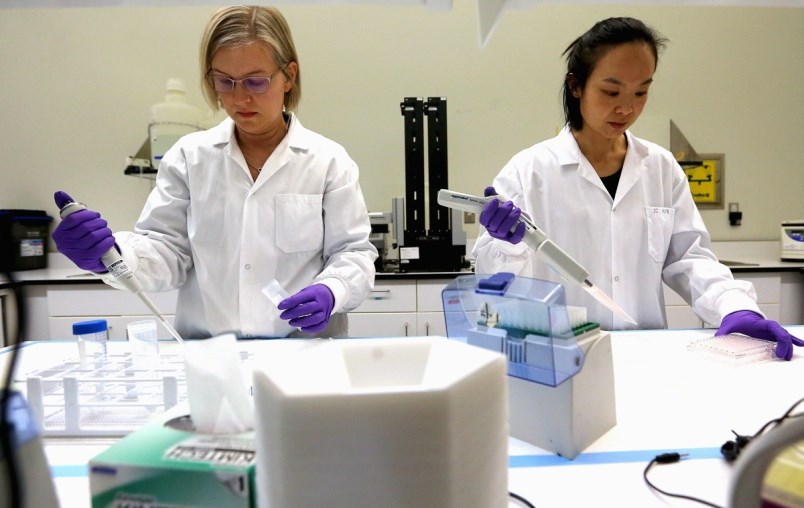Scientists in a Victoria lab are working on a vaccine and treatment for COVID-19, as the number of cases on the Island and around the world continues to climb.
Staff at ImmunoPrecise in Victoria and the Netherlands are trying to determine how the virus is spreading and mutating in order to prevent further spread and treat people already infected.
Their work involves generating an antibody that has a broad ability to treat people, said CEO Jennifer Bath, because the virus is mutating quickly. “It turns out it’s mutating faster than we thought, and there’s more than one strain,” said Bath, who has a PhD in cellular and molecular biology with a specialty in vaccine and therapeutic design.
That makes their work a little more complicated than a typical vaccine and treatment, which usually works by exposing a person’s immune system to a portion of a virus. The exposure causes the body to produce antibodies that recognize the foreign molecule, and leads to immunity to future exposure.
The goal at ImmunoPrecise is to develop a vaccine that can stay ahead of the virus’s ability to mutate and remain effective for a long period, which means identifying multiple portions of the novel coronavirus to use in a vaccine.
ImmunoPrecise is one of several companies working toward a vaccine and treatment. Bath said most others are trying to find a way to block the virus from binding to a human cell. Her team is looking at multiple approaches to address the outbreak.
“Any time you have this sort of a virus outbreak, you have a patient population that’s not been exposed to it, essentially the human population begins to place selective pressures on the virus and the virus then begins to mutate,” Bath said. “It becomes an evolutionary race for the virus.”
The team has recently added artificial intelligence to the mix, which enables them to predict and mimic the evolution of the virus and better understand it.
Bath said the company started work on the project in early February and took time to gather data on the novel coronavirus and the disease it causes to work toward a universally effective vaccine and treatment. The company’s work is being conducted by subsidiary Talem Therapeutics, which has previously worked on cancer treatment.
It’s hard to put a timeline on when a vaccine or treatment might be ready, but Bath said if all goes well, a treatment could be in clinical trials within a year. A vaccine will likely take longer, she said.
With so many people working on a solution globally, Bath is confident both will become available at some point. “People should have good confidence that a vaccine and a therapeutic will arrive on the market that will be available, probably initially, to higher-risk individuals,” she said.
Until then, Bath encourages everyone to continue following the advice of public health officials to limit contact with other people, avoid crowds, wash hands frequently and stay home when even the slightest bit sick.
“Those protective measures have already shown to work in other countries,” she said. “There’s no reason for people to panic.”


